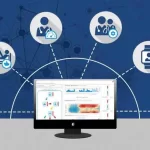It seems that there is no industry that big data can’t be applied to. Everyone knows the application of big data in hospitality, tourism, cybersecurity, retail and so on. So, it should come as no surprise that this idea is an immensely useful tool in an industry that literally thrives on the latest trends and customer preferences. Conventional methods of analysis fall short of producing any applicable deduction.
Bigdata promises to change all of this. It is nothing but data that is too large for traditional means of analysis to sift through. In an industry such as fashion, the global data on customer preferences and market trends can be humongous. But, reliable analysis of this data can really help fashion retailers with problems such as needs, tastes, pricing, stocking, supply chain, and inventory.
Ralph Lauren has already made significant forays into the applications of big data analysis to improve customer interaction. Ralph Lauren has rolled out a line of polo shirts with sensors to track their customer’s fitness levels by collecting real-time information about the person’s vitals. Buyers can use an app to track their own fitness levels based on the information gathered by the sensor.
Big data opens new doors for fashion retailers and manufacturers to discern what the customers are more likely to buy. Additionally, by using historical data from purchases, it becomes easier to know which products would go well with each other. This helps companies to organize their stores, both physical and digital, better.










